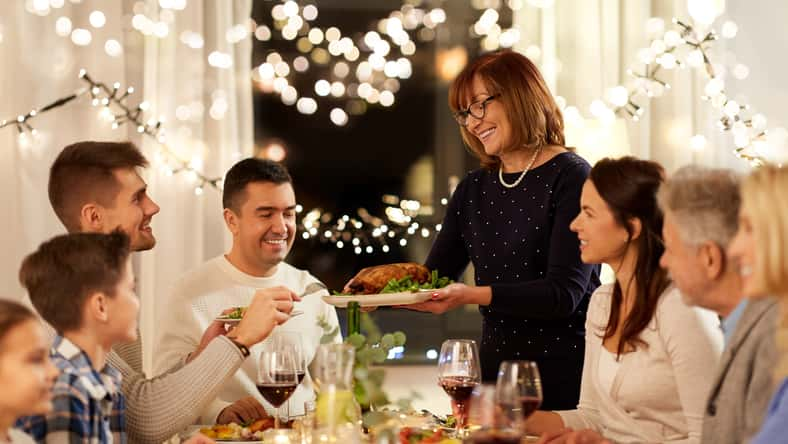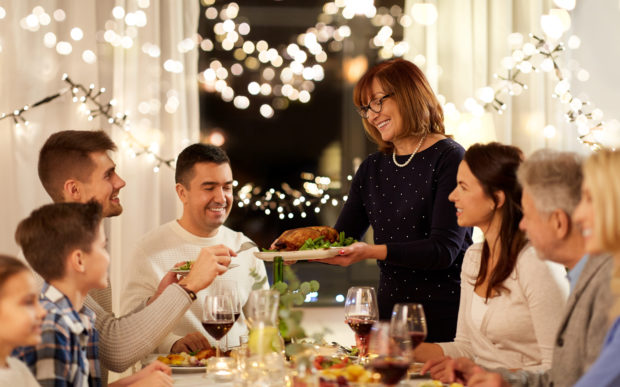New Global Study Analyzed How People Should Make Decisions About Holiday Gatherings In The Wake Of COVID-19, Influenza, And Respiratory Infections

With temperatures dropping and what many are coining the “tripledemic” spreading throughout the country– COVID-19, influenza, and respiratory syncytial virus (RSV)– navigating the holiday season will be tricky.
If you have the sniffles, should you attend that ugly Christmas sweater party? Or, if you have a cough, would it be best to skip Secret Santa this year or simply wear a mask?
Well, according to a new study conducted by the University of Colorado Boulder, simply taking the time to stop and ask yourself these questions can make all the difference– because the researchers found that when people self-reflected about the potential consequences of their behavior, people tend to make decisions that will result in the least risk for others.
The international analysis was conducted during the height of the pandemic and included thirteen thousand people. First, each participant was given three different hypothetical scenarios.
In one scenario, the participants owned a small restaurant and were forced to consider reducing their customer capacity as the COVID-19 virus surged.
In the second scenario, the participants had plans to meet up with fifty friends for a birthday party following months of isolation. However, federal mandates still advised against gatherings of ten or more people due to COVID-19.
And finally, the third scenario forced participants to consider whether or not they should cancel a Thanksgiving dinner that thirty family members– including young children and older adults– were supposed to attend.
Before anyone could make a decision, though, half of the study’s participants were instructed to take a step back and practice “structured reflection”– a technique that is supposed to help people be mindful of their values.
Then, the participants asked themselves two questions– how would their decision impact their personal life, and how would it impact public health?

Syda Productions – stock.adobe.com – illustrative purposes only, not the actual person
And amazingly, no matter the country, culture, age, or political party to that the study participants belonged, nearly everyone valued others’ well-being at least equally.
“That’s encouraging. Our study and others suggest it is a universal human tendency that people believe they should care about how their behavior affects other people,” explained Leaf Van Boven, the study’s senior author.
So now, the researchers believe that similar self-reflection techniques could be applied to a range of public health goals– specifically those where in-the-moment personal benefit sometimes overshadows widespread public health and safety.
“People know that they should not text while driving, that it’s better for the planet if they take the bus instead of drive, that they should eat more vegetables and exercise, but knowing is only the first step.”
As for this year’s holiday gatherings, Van Boven stressed the importance of socialization and human connection. At the same time, though, he underscored how the key to striking a balance between socialization and public safety is taking time to weigh the potential risks and benefits.
“I would encourage everyone to develop a habit of asking themselves when they are considering any sort of large social gathering: What is the risk you might impose on other people, and is the benefit of the gathering worth the risk?” Van Boven said.
To read the study’s complete findings, which have since been published in Oxford Academic, visit the link here.
If true crime defines your free time, this is for you: join Chip Chick’s True Crime Tribe
Sign up for Chip Chick’s newsletter and get stories like this delivered to your inbox.
More About:Science





